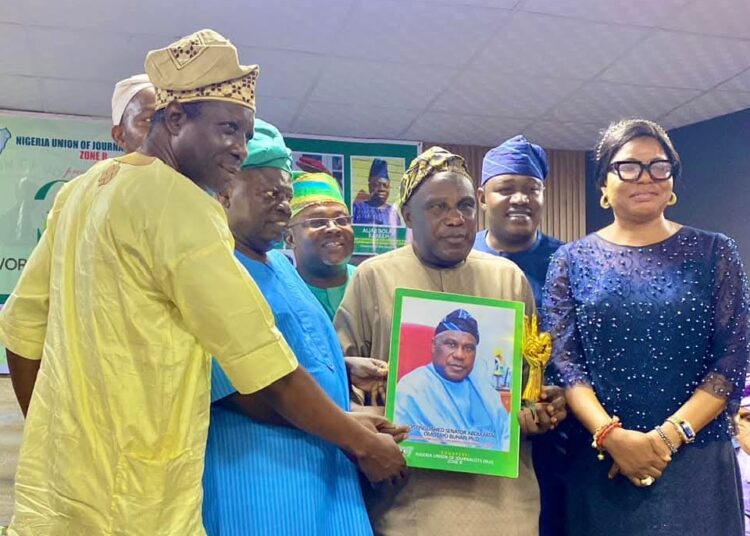Prominent Nigerian voices have called for the ethical regulation and responsible deployment of Artificial Intelligence (AI) tools in journalism to safeguard press freedom in the digital age.
Speaking at the 2025 World Press Freedom Day Lecture held in Ibadan, Senator Buhari AbdulFatai, who represents Oyo North Senatorial District, and Professor Razaq Olatunde Kalilu, Vice Chancellor of Ladoke Akintola University of Technology (LAUTECH), warned that while AI offers great promise to the media industry, its unchecked use could erode credibility, amplify misinformation, and endanger democratic values.
In his keynote address titled “The Impact of Artificial Intelligence on Press Freedom and Media”, Senator Buhari described AI as a double-edged sword—capable of both empowering and undermining journalism. He emphasised that although AI enhances efficiency, storytelling, and audience engagement, it must be guided by ethical frameworks to prevent misuse.
“The rise of AI has changed the media landscape drastically,” he said. “While it brings speed, efficiency, and innovation, it also threatens the foundations of free and credible journalism.”
The senator highlighted benefits such as automation, data-driven reporting, and personalised content delivery, pointing to international success stories like The Associated Press’s use of AI for automated reports and The Guardian’s investigative work aided by AI tools. However, he warned of risks including deepfakes, biased algorithms, job displacement, and the erosion of editorial oversight.
“These tools can be weaponised to mislead the public,” Buhari said, referencing deepfake content used during Nigeria’s 2023 elections. “Which poses a direct threat to democracy and media credibility.”
He also noted how Nigerian platforms like Dubawa and Africa Check are leveraging AI for fact-checking, while media organisations like Channels TV and The Guardian Nigeria use AI for transcriptions and summaries. He commended TVC News’s recent introduction of AI-powered anchors in local languages but stressed the need for strict oversight.
In his contribution, Professor Kalilu echoed these sentiments, describing AI as both a disruptor and a facilitator of journalism. He noted that the technology is reshaping newsrooms and enabling automation across the content creation pipeline—from research and writing to editing and publishing.
“AI is redefining the traditional boundaries of journalistic practices,” he said. “But we must interrogate whether these tools are serving the truth—or obscuring it.”
Kalilu cited The Washington Post’s Heliograf and AP’s Wordsmith as examples of newsroom AI innovation but warned that algorithmic disinformation, surveillance, and declining public trust pose real threats. “In the wrong hands, AI becomes a tool for mass repression,” he said.
Both speakers concluded with strong calls for AI literacy among journalists, legal reform, and collaboration between media practitioners, technologists, and policymakers to develop regulatory safeguards.
“AI should assist, not replace, journalists,” Senator Buhari declared. “Truth, fairness, and accountability must always prevail.”
Professor Kalilu added, “Our goal should be to ensure that AI serves journalism—not subverts it, but strengthens it.”
The lecture closed with a unified appeal for collective action to ensure AI drives progress in journalism without compromising its core values.
In her welcome Prince Ronke Afebioye Samo, Vice President NUJ B zone said the theme is a pointer to the urgent need to ensure that technology serves public interest and do not undermine freedom of expression and democratic participation
Senator Fatai Buhari was however awarded the Guillermo Cano Media Award by the Nigeria Union of Journalists for his contributions to press freedom and the growth of the media profession
The lecture was attended by Past NUJ leaders and executives from all the zones among others.













